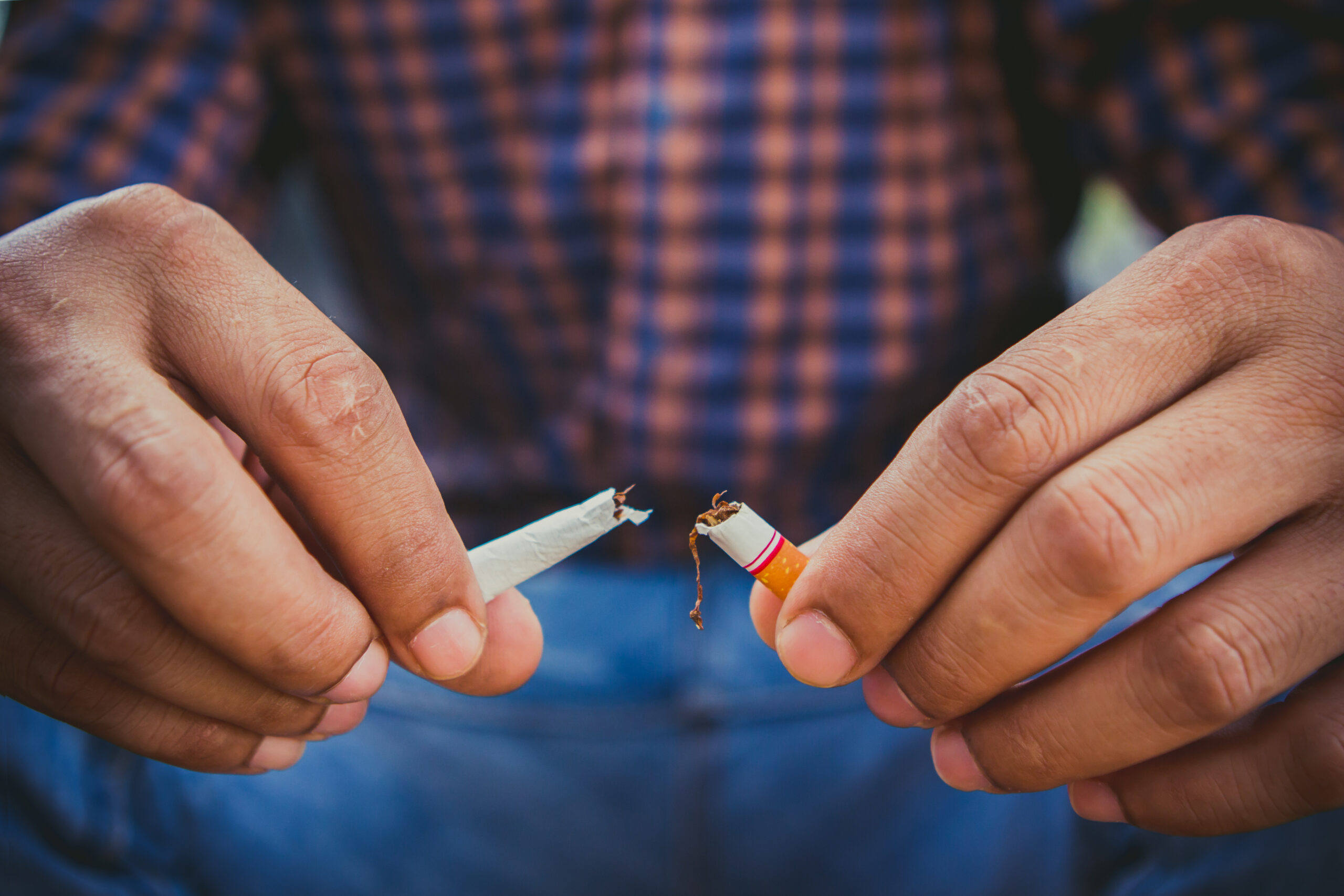What Happens to Your Body When You Quit Smoking Cigarettes?
When you consider quitting smoking, you may think the damage is done or it is too late to stop. While these thoughts are normal to have, quite the opposite is true! Your body begins healing after your last cigarette. While the idea of withdrawals and quitting can be intimidating, the sooner you end this habit, the sooner your body can achieve long-lasting health benefits.
Why is Smoking bad?
Smoking cigarettes has both short-term and long-term effects on your body. It raises your blood pressure and fills your blood with carbon monoxide instead of oxygen, making it harder for your muscles to receive the oxygen they need. Smoking not only affects you and your body but can also negatively impact the health of those around you.
Long-term effects of smoking
Eventually, smoking increases your risk of lung cancer, asthma, heart disease, stroke, and other health-related issues. This costly habit can take years off your life while providing you with throat and eye irritation, breathing troubles, yellow teeth, and a smoker’s cough.
Benefits of Quitting Smoking
Quitting tobacco usage can provide significant benefits today and in the future. When you decide to stop smoking, you will save time, money, and your health! You will be less stressed while having more energy. You will also regain your taste and smell and improve your skin and complexion. The benefits of quitting smoking far outweigh the hassle of stopping this harmful habit. Quit today and get your life back!
What to Expect When You Quit Smoking Cigarettes
Quitting tobacco usage can make a positive difference in your life, from the first day you stop smoking until 15 years after quitting.
First Day of Quitting
Just hours after your last cigarette, your pulse, circulation, and blood pressure return to normal. Then within that first day, the nicotine works to exit your system, leaving you with slight urges to smoke, but these cravings tend to last no longer than 10 minutes; you can do this! Lastly, in just one day, you have allowed your carbon monoxide levels to return to their usual amount, which allows your body’s oxygen levels to increase. This helps your heart and lowers your chances of a heart attack!
The First Week
Nicotine will leave your body in the first week after quitting as your taste and smell improve. Your nerve endings are healing, but you will begin to experience your first withdrawal during this time. This may make you feel dizzy, anxious, and irritable and leave you with headaches. This is your body’s effect of working to live without nicotine; fortunately, in this first week, you can breathe easier, and your risk of heart disease and stroke has greatly decreased.
2 Weeks to 1 Year
You have passed the most challenging withdrawal phase at this stage in the game! You will have more energy and can exercise better without getting out of breath. Additionally, you will get sick less as your lungs and heart are healing and clearing up. With this detox comes a cough as your lungs work to clean up.
1 to 5 Years
You have officially cut your heart disease risk in half and reached a turning point! Your blood can also travel throughout your body more efficiently, decreasing your risk of stroke.
After 5 Years
After five years, your chances of certain forms of cancer have significantly decreased to even half the chance compared to when you were smoking.
After 10 Years
Once a decade has passed, you are officially 50% less likely to have lung cancer than a current smoker. With that said, years of nonsmoking genuinely do add up!
After 15 Years
Your body has healed immensely, and your chances of heart disease are equal to if you had never smoked! Overall, the withdrawals, cravings, and troubles of quitting smoking are worth it as you reclaim your health and life.
Ideas on How to Quit Smoking
While the idea of quitting smoking sounds excellent, it can be difficult, but with a plan in place, you are more likely to succeed. Only 5% of smokers successfully quit using the cold turkey method. We are here to help you develop a personalized plan to help you stop.
Below Are Some Tips on Ways to Quit Smoking:
- Stay busy
- Quit smoking with a friend or family member
- Throw away all cigarettes, ashtrays, and other smoking-related items
- Chew gum
- Switch to a brand of cigarettes that you don’t like
- Utilize nicotine cessation resources
How to Ease Nicotine Withdrawal Naturally
While getting rid of the physical and mental effects of quitting smoking is out of your reach, you can work to conquer these outcomes and make the journey to stopping smoking easier. To get past nicotine withdrawals, you must have ways to distract yourself or other activities to occupy yourself with to replace your smoking habit.
Some tips for easing nicotine withdrawal include walking, eating healthy, not skipping meals, and staying hydrated (drinking lots of water to the point that your urine is almost clear). You can also try deep breathing, keeping yourself distracted with your favorite hobbies, changing your daily routine, and sleeping more.
How to Get Rid of Smokers' Cough
A smoker’s cough may start while smoking or after quitting. It includes a dry or hacky cough, chest pain, wheezing, shortness of breath, and a sore throat. Fortunately, these symptoms can be addressed. By quitting smoking, you are already helping your body recover, reducing your cough. Additionally, staying hydrated and active can loosen the mucus in your lungs to help clear up your cough. Lastly, using steam, gargling salt water, and sleeping with your head elevated can improve your cough.
Frequently Asked Questions

